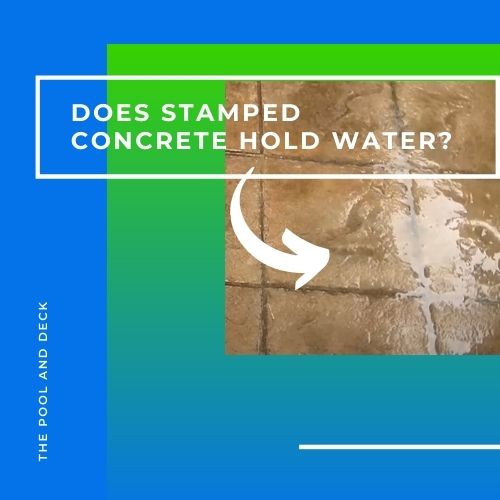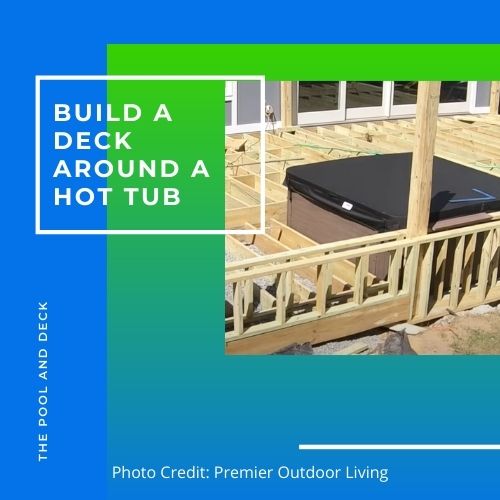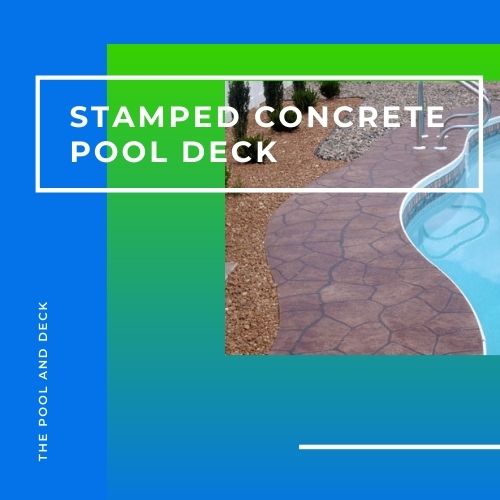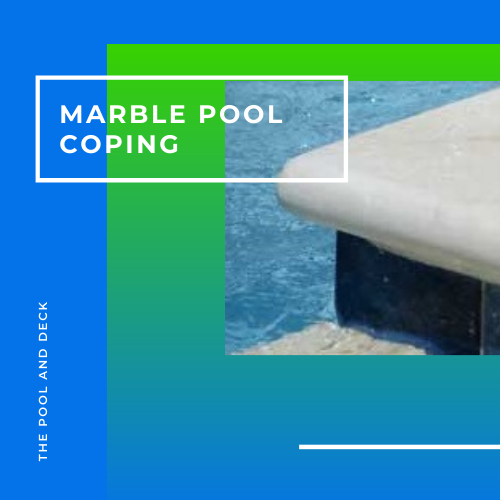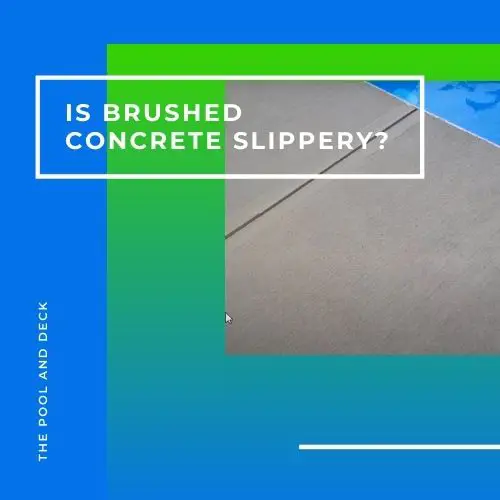PVC Pool Coping: 5 Unique Advantages of Using It!
Table of Contents
Is PVC Good for Pool Coping?
If you are on a tight budget but need to get a pool coping installed, then PVC pool coping is sure to have crossed your mind. But is PVC a good choice for your pool coping?
PVC pool coping offers only one unbeatable advantage. It is cheap. The trouble is it looks cheap too! PVC pool coping may look somewhat decent to begin with but will fade, get dull and develop cracks before long.
PVC pool coping is certainly not a good choice for an outdoor inground pool.
Do not get me wrong! PVC is a great material, as it is not only affordable but also has several outstanding features. PVC doors and windows are extremely popular and are often an excellent choice. So are PVC interior wall panels, shower curtains, etc.
They are super easy to clean and maintain. PVC looks and works wonderfully well indoors. Not so well, when used outdoors. PVC has poor UV resistance.
PVC products, such as pool copings, that are constantly exposed to sunlight, look jaded and dull after some time. The surface loses its gloss. Not only does it look terrible, it also becomes brittle and develops cracks over years.
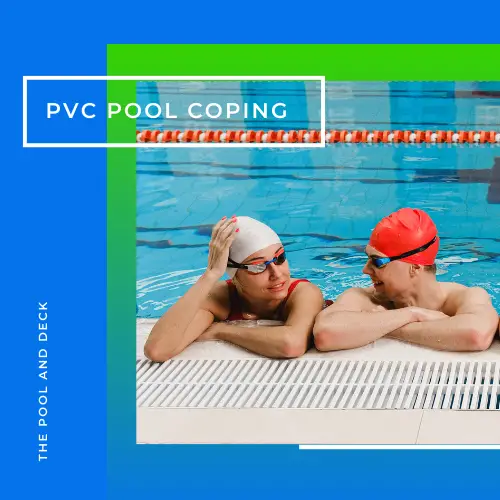
What Is PVC Pool Coping?
It may seem that the pool coping is just a component of the deck. However, this is not the case. More often than not pool coping is visually distinct from the pool deck. The distinction may come from the coping material, color or pattern.
In addition to serving as a visual demarcation, the pool coping is an essential part of pool and deck construction and serves several very important functions such as:
- Protecting the pool wall and foundation from water ingress
- Keeping the deck dirt & debris from getting into the pool
- Providing a ledge for swimmers to hold onto and pull themselves out
- Adds to the aesthetic appeal of the pool and deck
Pool coping may or may not be of the same material as the deck. Concrete, brick and natural stones are quite popular, but synthetic materials such as metal, PVC and composites can also be used as pool coping.
PVC (polyvinyl chloride) is a synthetic material that is widely used in building & construction, automobile, electronics and the medical sector.
PVC is versatile and extremely affordable with some excellent physical properties. Doors & windows, plumbing, siding are some of the most common applications of PVC in the housing sector.
PVC, being synthetic, can be formulated to have desired physical and chemical properties. Moreover, it can be cast, extruded or rolled into any shape imaginable. It is not surprising that PVC has found use as pool coping too!
PVC coping can be installed on both concrete and fiberglass pools and is typically secured to the top of the pool wall with brackets or screws.
The coping serves as a transition between the pool deck and the pool edge, providing a finished look while also protecting the pool wall from damage.
What Are the Advantages of PVC Pool Coping?
PVC pool coping has a few unique advantages which make it an option, worth considering, for budget conscious pool owners.
1. Affordable:
PVC pool coping is very affordable and therefore a preferred option for those on a tight budget. There is an abundance of production and supply of PVC which helps drive down PVC pool coping prices. They are arguably the cheapest option available to a pool owner.
2. Easy to Install:
Moreover, PVC coping is very easy to install. PVC coping is light and easy to handle. They are designed such that each piece locks into the next piece exactly. You do not need any special tools or equipment for the installation.
You can eliminate the high labor costs associated with pool coping installation by doing it yourself.
3. Chemical Resistance:
PVC pool coping is impervious to moisture and resistant to even harsh chemicals. Exposure to pool water does not degrade PVC in any manner.
4. Low Maintenance:
Being non absorbent, PVC pool coping does not stain or encourage growth of mold or moss. All you need to do is wipe it with a mop dipped in soapy water to remove any dust or debris that may have settled on it.
5. Cost Effectiveness:
PVC pool coping is very cost effective due to its affordable prices, ease of installation and low maintenance needs.
What Are the Disadvantages of PVC Pool Coping?
PVC pool coping has several important disadvantages and must be considered only if you really want a pool coping at the lowest possible price. Here are some of the main drawbacks of PVC pool coping:
Poor Aesthetics:
PVC is a synthetic material and completely lacks any warmth or natural charm. In spite of the fact that PVC pool coping is available in a variety of colors and textures, it remains bland and unappealing to the eyes.
The pool is a significant asset of your home and a place to relax, socialize and make memories. The pool and its surroundings should exude your creativity and personality. PVC pool copings just do not make the grade.
Poor UV Resistance:
Additives can be added to make PVC UV resistant, but prolonged exposure to sunlight will ultimately cause it to fade over time. The PVC coping starts to look dull & lifeless, taking away whatever little appeal it may have had to begin with.
Not only does PVC fade when exposed to sunlight, it also tends to get brittle and crack.You may require replacement of the coping material sooner than expected.
Heat Absorption:
PVC readily absorbs heat and becomes unbearably hot to the touch during warm summer days. This can be quite uncomfortable for swimmers and sunbathers. Hanging around the pool, especially on the coping may be a lot less enjoyable during the hottest parts of the day.
Bottom Line
The bottom line is that you may choose to use PVC pool coping because it is cheap and affordable. However, keep in mind that PVC pool coping may be cheap but it is not good value for money.
Thank you very much for reading the post. I do hope you found it informative and helpful.

